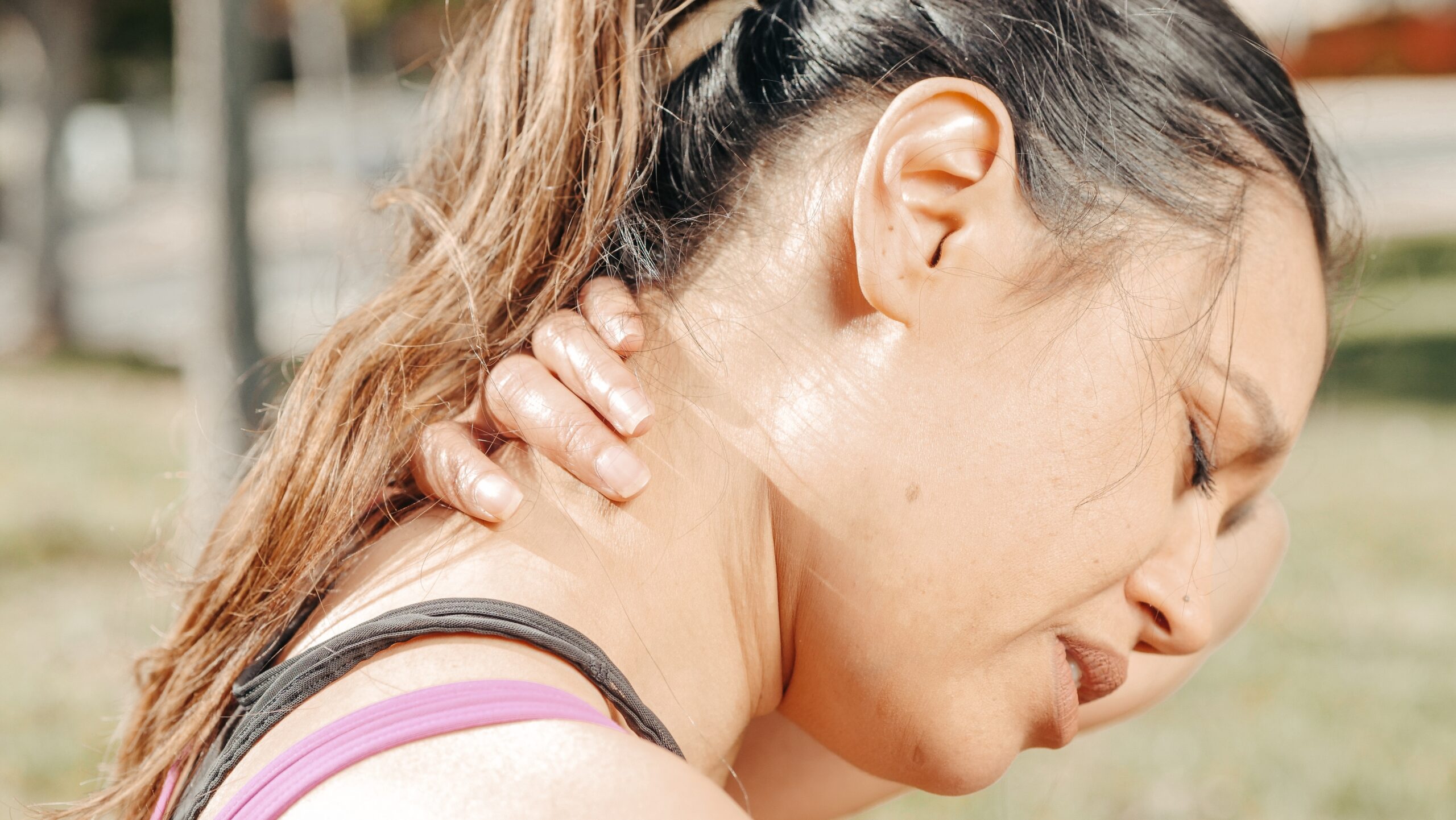Neck pain: Types, Causes, Diagnosis, Treatment
Uploaded on: 9 June 2023

Neck pain, also called cervical, is a common problem. It can be caused by muscle pressure in both the neck and upper back, or squeezed nerves that exit the cervical vertebrae. A sprained joint in the neck causes pain, as does a sprained joint in the upper back. It is so common that it is the fourth leading cause of disability worldwide after ischemic heart disease, cerebrovascular disease and lower respiratory tract infections. Around 30% experience it consistently.
Types of Neck pain:
- Mechanical pain: One of the most common types of neck pain is axial pain, also known as mechanical pain. Axial pain is concentrated in one area or areas of the neck and does not move or radiate.
- Neuropathic neck pain: originating from nerves or nerve roots in the cervical spine can be caused by a herniated disc pressing on a nearby nerve or other causes of nerve compression.
- Myelopathic pain: When the spinal cord in the neck is compressed, it develops myelopathic pain.
- Referred pain: When pain is felt at a place other than its source and is not caused by irritation of the nerve root, it is called referred pain. It is usually experienced as a deep, painful, cramping and/or jerking sensation.
- Radicular pain: can occur when a nerve root in the cervical spine becomes inflamed, causing pain to radiate along the nerve, to the shoulder, arm, and/or hand.
Causes:
- Sitting for long periods of time in the wrong posture and leaning or hunching over a computer screen can cause the head to move forward, putting extra stress on the neck. Side-to-side while dancing or swimming can overuse the muscles, tendons, and ligaments of the neck.
- If the neck bones (cervical vertebrae) are cracked, the spinal cord can also be injured. A neck injury caused by a sudden head movement is commonly called whiplash.
- Occasional vomiting causes pain, joint swelling, and bone spurs. Neck pain can occur when these occur in the neck area. Osteoporosis weakens the bones and can lead to small fractures. This condition often occurs in the hands or knees, but it can also occur in the neck. Fibromyalgia is a condition that causes muscle pain throughout the body, especially in the neck and shoulder region.
- Spinal stenosis occurs when the spinal column narrows and puts pressure on the spinal cord or nerve roots as they exit the vertebrae. This can be caused by chronic inflammation from arthritis or other conditions.
- In some rare cases, neck stiffness or pain is caused by: Congenital anomalies, infections, tumors, spinal cord cancer
Diagnosis:
- Neck pain is often diagnosed by a doctor.
- The most important component of treatment is trying to identify the underlying cause of the pain, as this can guide treatment, and this test is often done if you experience or have had numbness or tingling in your shoulder, arm, or neck.
- Focal weakness indicating nerve damage.
Treatment:
- The most common types of moderate to mild neck pain respond positively to self-care within a few weeks. If pain persists, based on the results, your doctor may recommend other treatments, which may include:
- Your primary care physician might recommend more grounded pain killers than you can get without a medicine, and may endorse muscle relaxants and tricyclic antidepressants to ease torment.
Basic Home care for Neck pain:
- Apply ice for the first few days. Then, apply heat with a heating pad, hot compress, or hot shower.
- Take a few days off from your signs and weight-bearing sports activities. At the point when you continue your typical exercises, do it gradually so the side effects die down.
- Do neck practices consistently. Delicately stretch your head with side-to-side and all over developments. Use good posture.
- Try not to hold the phone between your neck and shoulders.
- Gently massage your neck. Use a special neck pillow for sleeping.
- Do not wear a collar without your doctor’s permission. If you don’t use them properly, they can make your symptoms worse.
You may also interested in:
Cancer| Symptoms, types, prevention and treatment
Heart Disease| Causes and Symptoms | Risk factors
7 Yoga asanas for Thyroid improvement
